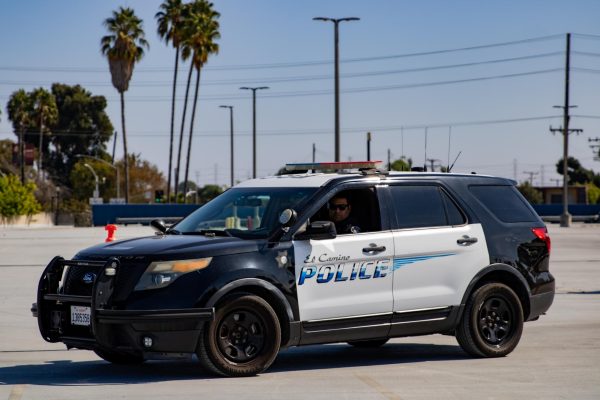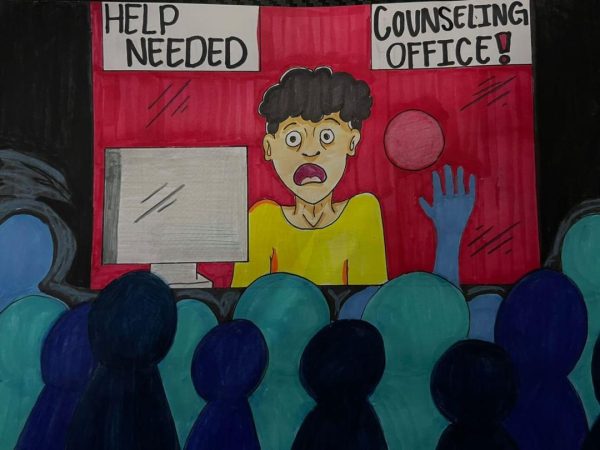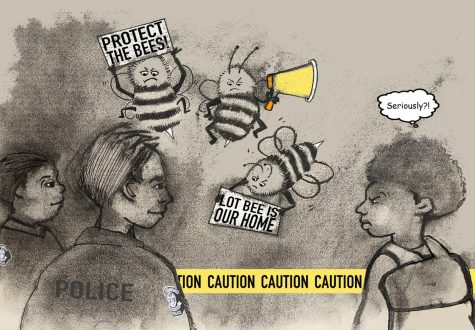Should police shoot to kill? YES
The shooting of 13-year-old Devin Brown by a Los Angeles police officer was a tragic and predictable outcome for a society with law, order and self-interest values like our own.
Devin, as you recall, was the 13-year-old boy who was killed after backing the car he was driving into the Los Angeles police cruiser that had been pursuing him.
Officers first observed the maroon 1990 Toyota Camry run a red light at 3:49 a.m. in South Los Angeles where Gage crosses under the Harbor Freeway.
After a brief pursuit, the Camry’s driver failed to make a right turn at the intersection of Western Avenue and 83rd Street and ran up onto a curb. A 14-year-old passenger with Brown then fled the scene.
The owner of the 1990 Toyota Camry had reported it stolen at 12:45 a.m. to the 77th Street Division, where it was entered into the police computer as a crime (according to an article in the Los Angeles Times.)
We now have two different people with different problems seeking attention from law enforcement.
One person is seeking the return of his private property while the other commits a crime when he needs help in building a successful life and completing his education.
Herein lies the problem: asking for help from the police by driving a stolen car, traffic violations, and backing into a police car is problematic at best.
Law enforcement is a dangerous job in which fortunes for both police officers and the people they encounter can change in an instant.
Police are trained to solve problems with guns, handcuffs, batons, Tasers, and force, not with reason or counseling.
When someone deviates from the law, he risks being confronted by police, sometimes with a friendly warning and other times with force.
Should they resist, the police will escalate their use of force until the suspect surrenders or is killed.
We have seen this model used time and again with the 1974 Symbionese Liberation Army shootout, 1997 North Hollywood shootout, and 2001 Santa Clarita shootout.
Whether it’s a car chase, a barricaded robbery suspect, or a riot, many in the electorate can expect to see the police advance against those who violate the law.
During the North Hollywood Shootout, the police commandeered an armored car and military-type weapons to counter the two bank robbers with automatic weapons and bulletproof suits.
The police used their new equipment to rescue a wounded colleague and to overwhelm the robbery suspects before they could flee the area.
In this situation, it would have run contrary to our law and order values for the police to withdraw.
The self-interest of a police officer is another element that contributes to the un-holstering of a gun.
Long successful careers are built on an employee’s ability to earn a good wage over a long period of time, not workers’ compensation claims.
Those who understands the adversarial nature of the workers’ compensation system would never want to take a risk that could result in an on-the-job injury.
Filing a workers’ compensation claim requires you to subject yourself to the scrutiny of defense doctors, applicant doctors, private investigators, surveillance video, attorneys, and claims adjusters. In workers’ compensation, the insurance company works for itself, not for you.
The incentive of the workers’ compensation insurer is to impeach the credibility of your claim or limit its value by arguing that your back injury, shattered hip, crushed ankle, or gunshot wound are all in your head.
Workers’ compensation and the potential for an injury act as one more calculation for the police officer to perform as well as an additional incentive to un-holster their weapon.
Finally, it’s estimated that there are 193 million guns in the United States (Brady Campaign statistics), and that in 2002 132 police officers were killed in the line of duty (U.S. Census Bureau.)
What happened to Devin Brown was a tragedy, but it is not unexpected for a society like ours with its crucial and needed laws, order, and self-interest values.






